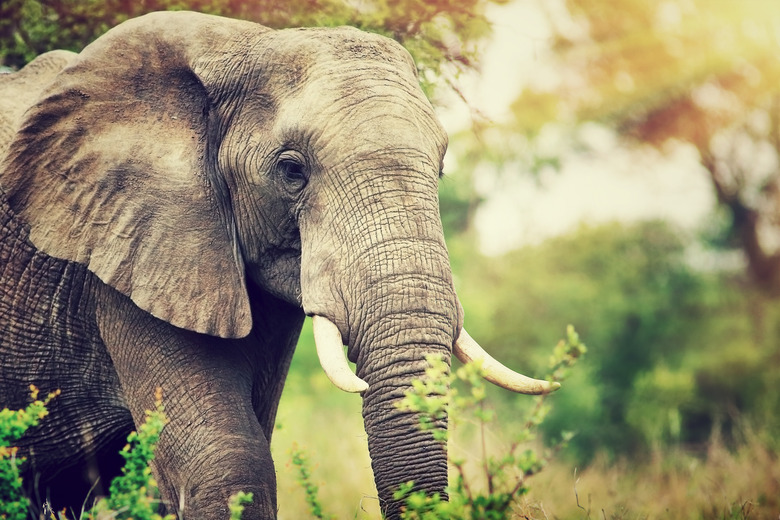How Do Elephants Sleep?
Elephants are the largest land mammals, but they still manage to lie down to sleep. Elephant species include the African bush elephant (Loxodonta africana) and Asiatic elephant (Elephas maximus), both of which sleep on their sides for long periods or cat nap while standing, leaning against a tree for support. Captive elephants may have different sleep patterns from elephants living in the wild.
Sleeping Giants
Sleeping Giants
Elephants sleep in a series of naps during the night. In captivity, elephants sleep 3.1 to 6.9 hours at night, lying down for one to 4.5 hours at a time and getting up to feed between naps. Studies of wild elephants indicate they also lie down to sleep at night, for 0.67 to two hours at a time. Wild elephants may also sleep during the daytime. Bull African bush elephants have been observed taking naps about 40 minutes long between 8 a.m. and 3 p.m., according to André Ganswindt and Stefanie Münscher of the University of Pretoria, South Africa, in article for South African National Parks.
Human Impact
Human Impact
Living in close proximity to humans causes elephants to change their sleeping habits. Elephants are naturally diurnal animals, which means they sleep at night and are awake during the day, but wild African elephants can become nocturnal when living near villages and farmland. This may be because human activity is reduced during the night.
Cite This Article
MLA
Green, Jenny. "How Do Elephants Sleep?" sciencing.com, https://www.sciencing.com/elephants-sleep-4565899/. 13 March 2018.
APA
Green, Jenny. (2018, March 13). How Do Elephants Sleep?. sciencing.com. Retrieved from https://www.sciencing.com/elephants-sleep-4565899/
Chicago
Green, Jenny. How Do Elephants Sleep? last modified March 24, 2022. https://www.sciencing.com/elephants-sleep-4565899/
